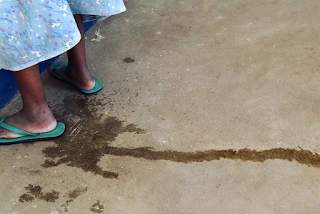Theresa Takafuma
Amnesty International on Thursday May 20 launched a report on
obstetric fistula, a maternal morbidity that has been described as the most
devastating birth injury.
The report was launched virtually ahead of the United Nations
International Day to End Obstetric Fistula on May 23.
Titled, ‘I never thought I could get healed from this’, the
report gives insight in the lives of women and girls with obstetric fistula in
Zimbabwe.
It highlights the barriers to treatment and human rights abuses
against women and girls with the condition and lays bare its physical and
psychological impact and the suffering that women and girls with the condition
go through.
Amnesty International Director for East and Southern Africa Deprose
Muchena said Zimbabwe had a high mortality rate and this stems mainly from
failure to access public health care during pregnancy and childbirth, resulting
in either death or maternal morbidities like obstetric fistula.
“Zimbabwe has one of the highest maternal mortality
rates in the world and pregnant women have to gamble with their lives by opting
for home births due to underfunded and under-resourced government hospitals or
because they cannot afford the costs of care.
“Cultural beliefs also mean that some women do not have
a choice but to submit to home births administered by untrained family or
community members,” Muchena said.
Women who narrated their stories with the condition at the
launch said after the injury they could no longer contain urine or faeces, making
them a subject of shame and ridicule in their families and communities.
Memory (not real name), a 50-year-old woman from Bikita and a
mother of six, said she got injured after prolonged labour when she was giving
birth to her first child in October 1995 and only found out about the condition
after bearing her sixth child until a gynecologist offered to help her with
corrective surgery over 20 years later.
“I could not eat if I wanted to travel because I would
soil myself. I was always being told I had a foul smell and that made me lose
confidence until I found help recently,” Memory said.
Another woman, Tariro (not real name) a 42-year-old from
Bikita who suffered from the condition, said she did not
know what was causing her incontinence and she suffered for many years until
she got help for surgery by Dr Takura Kanonge from Chinhoyi.
The report notes that women from low income backgrounds are
most prone to the condition, and data on how many women suffer from it is
difficult to collect because of its nature, as it is mostly associated with
shame.
It also indicates that for every maternal death, there are
about 20 maternal morbidities which include obstetric fistula.

